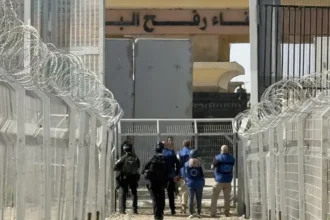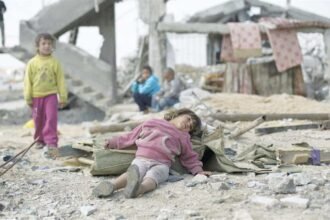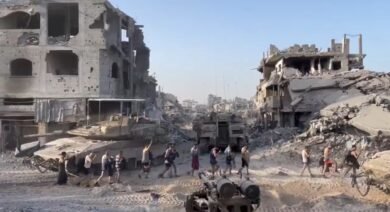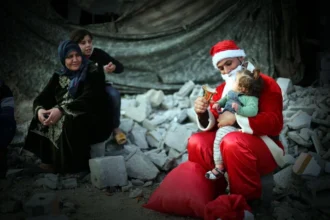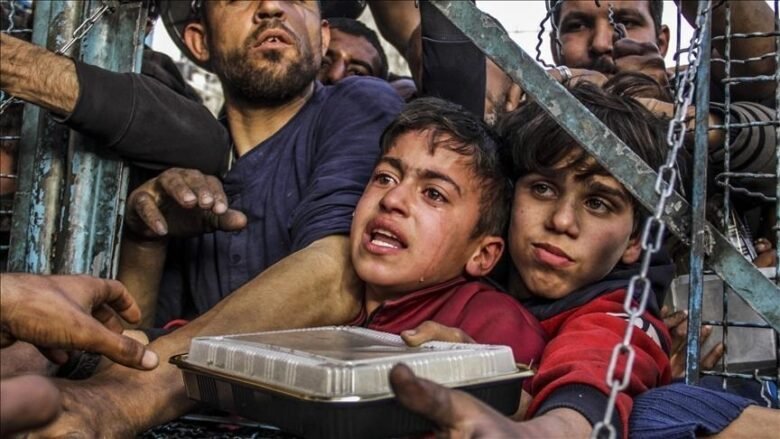
ICSPR Sends an Urgent Memorandum on the Escalating Famine in the Gaza Strip and Calls for Immediate International Action to Save Civilians
Date: 17 October 2025
Urgent Appeal
ICSPR Sends an Urgent Memorandum on the Escalating Famine in the Gaza Strip and Calls for Immediate International Action to Save Civilians
The International Commission to Support Palestinian Rights (ICSPR) has sent an urgent memorandum to a number of international bodies and UN organizations on the occasion of World Food Day, calling for immediate and effective action to prevent an unprecedented humanitarian catastrophe in the Gaza Strip, amid the ongoing Israeli blockade and the devastating consequences of the recent war, which have led to the near-total collapse of food and health security in the enclave.
The memorandum was addressed to:
Mr. Cindy McCain, Executive Director of the World Food Programme (WFP);
Mr. Qu Dongyu, Director-General of the Food and Agriculture Organization of the United Nations (FAO);
Mr. Michael Fakhri, UN Special Rapporteur on the Right to Food;
Dr. Tlaleng Mofokeng, UN Special Rapporteur on the Right to Health;
Ms. Francesca Albanese, UN Special Rapporteur on the Situation of Human Rights in the Palestinian Territories Occupied since 1967;
as well as UNRWA Commissioner-General Philippe Lazzarini, the Office of the High Commissioner for Human Rights (OHCHR), the International Committee of the Red Cross (ICRC), the World Health Organization (WHO), and the Global Food Security Network.
In its memorandum, ICSPR stressed that the prolonged blockade and the recent war have destroyed the agricultural and food infrastructure in the Gaza Strip, leaving hundreds of thousands of families facing the threat of famine and slow death.
It cited recent UN reports, including a joint analysis by FAO, WFP, UNICEF, and WHO dated 22 August 2025, which confirmed that more than half a million people in Gaza are currently trapped in areas classified as IPC Phase 5 (“famine conditions”), while over 1.14 million people face emergency levels of food insecurity (IPC Phase 4) and around 396,000 are in crisis (IPC Phase 3).
The Commission noted that over 40% of households in Gaza suffer from severe food shortages, and that nearly 39% of the population go for days without enough food, leading to widespread malnutrition and rising mortality rates, particularly among children and pregnant women.
According to the memorandum, 460 Palestinians — including 154 children — have died due to starvation and malnutrition, while more than 320,000 children under the age of five are at risk of acute malnutrition.
ICSPR also warned that 98% of Gaza’s agricultural lands have been destroyed or rendered inaccessible, while Israeli restrictions continue to block the entry of essential farming inputs such as fuel, seeds, and fertilizers.
At the same time, bakeries, mills, farms, and food storage facilities have been targeted, and border crossings remain closed, all of which have led to the total collapse of the local food system.
The organization emphasized that these practices amount to the use of starvation as a weapon of war against civilians, and that turning access to food into a political bargaining tool constitutes a serious violation of international humanitarian law and the Geneva Conventions.
It affirmed that what is taking place in Gaza represents a structural and systematic violation of the right to food, not merely a temporary humanitarian crisis.
ICSPR called on the international community to fulfill its moral and legal responsibilities and take urgent steps to halt the worsening catastrophe. The Commission urged:
-
Guaranteeing the opening of humanitarian crossings to allow the safe and regular flow of food and medical aid to all areas of the Gaza Strip.
-
Increasing international support for humanitarian organizations to meet the population’s basic needs and compensate for the severe shortage of food imports.
-
Rebuilding the agricultural and food infrastructure to ensure the sustainability of local production.
-
Linking food aid to transparent monitoring and accountability mechanisms to ensure fair distribution and prevent misuse.
-
Treating the right to food as a matter of international accountability, not just a temporary emergency issue.
-
Enhancing international and local coordination to ensure fast and equitable aid distribution.
-
Activating monitoring and documentation mechanisms for cases of malnutrition and related deaths to enable a sustainable and effective response.
ICSPR concluded its memorandum by emphasizing that each day of delay in humanitarian intervention may mean the death of another child from hunger, urging international organizations to act immediately to save thousands of families in Gaza and to translate their humanitarian and legal commitments into concrete measures that guarantee the right to food and human dignity.


